The Cruel Use Of Monkeys For Thailand's Coconut Business
According to an investigation by People for the Ethical Treatment of Animals, Thailand's coconut business has been overworking monkey.
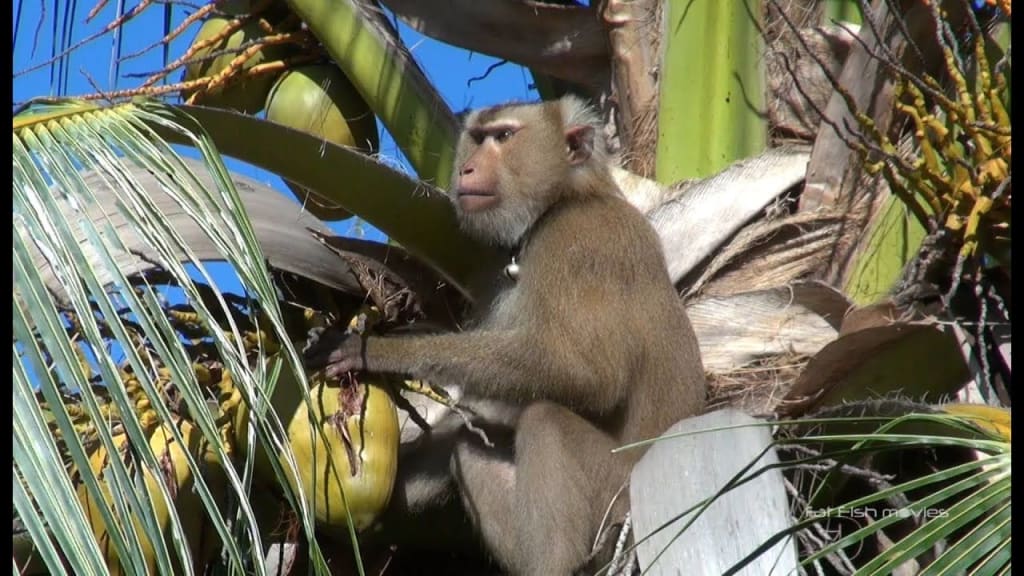
People for the Ethical Treatment of Animals (PETA) is calling for a global boycott of Thai coconut milk manufacturers after claiming that the sector has engaged in "systematic abuse" of monkey, using them for slave labor.
In a recently released report, PETA singled out the food delivery service HelloFresh for reportedly sourcing coconut milk from Thai suppliers who engage in the practice.

PETA investigated the nation's coconut sector for eight months, from December 2021 to July 2022, and discovered that monkeys are tied and forced to "work long hours climbing tall trees and plucking heavy coconuts."
"In response to international criticism following the release of PETA Asia's two previous investigations, the Thai government and companies that make coconut products have claimed that monkeys are no longer used in the production of exported products.
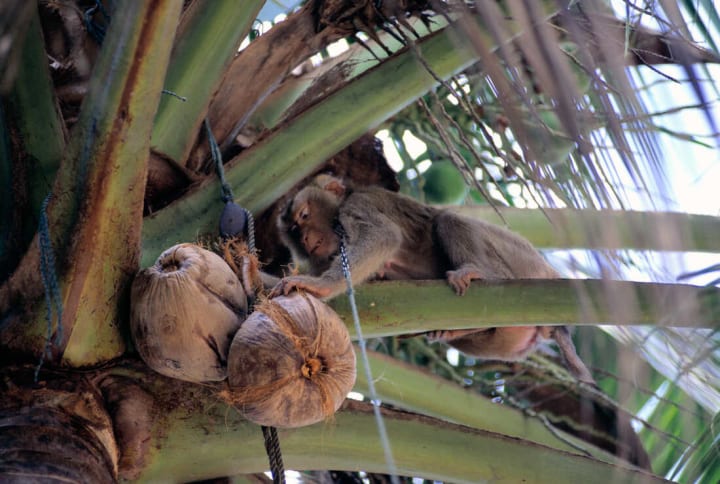
However, PETA Asia's new investigation has confirmed that rampant abuse of primates is still going unchecked and that Thai coconut industry insiders are deliberately concealing monkey labor in the supply chain..." HelloFresh continues to refuse to do the right thing by relocating its coconut milk supply chain outside of Thailand," PETA noted on the investigation's webpage.
The website also includes photographs and videos gathered by PETA Asia investigators. On coconut fields, footage shows monkeys shackled, beaten, and hung by their necks.
According to the non-profit organization, they visited 57 companies in nine regions across Thailand, including coconut pickers, brokers, farms, and monkey training institutes. At each location, they claimed discovered monkeys subjected to cruel training.
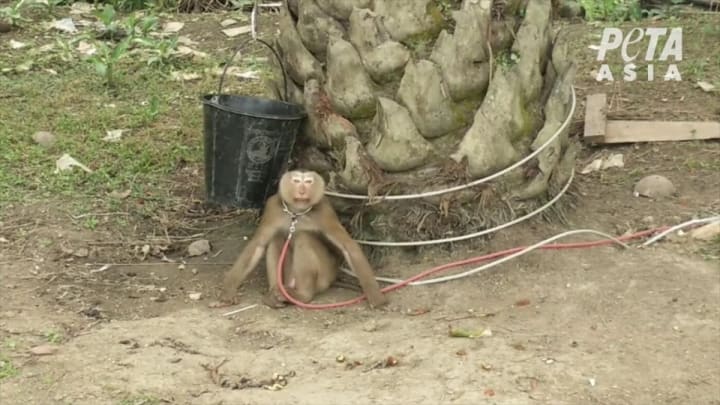
"PETA inspectors observed endangered monkeys chained by the neck when not compelled to labor and kept tethered in frequently flooded, trash-filled regions with little shelter from the weather," PETA reportedly stated in a statement. "A trainer was captured on camera striking a screaming monkey, suspending him by his leash and collar, and thrashing him with a metal chain."
HelloFresh refuted PETA's allegations in a statement released to CBS MoneyWatch.
"HelloFresh strongly condemns any exploitation of monkey labor in its supply chain, and we take a firm stance against sourcing from or selling coconut items sourced from vendors who have been discovered to use monkey labor. The corporation reportedly stated, "We have written proof from all of our U.S. and international vendors that they do not engage in these practices."
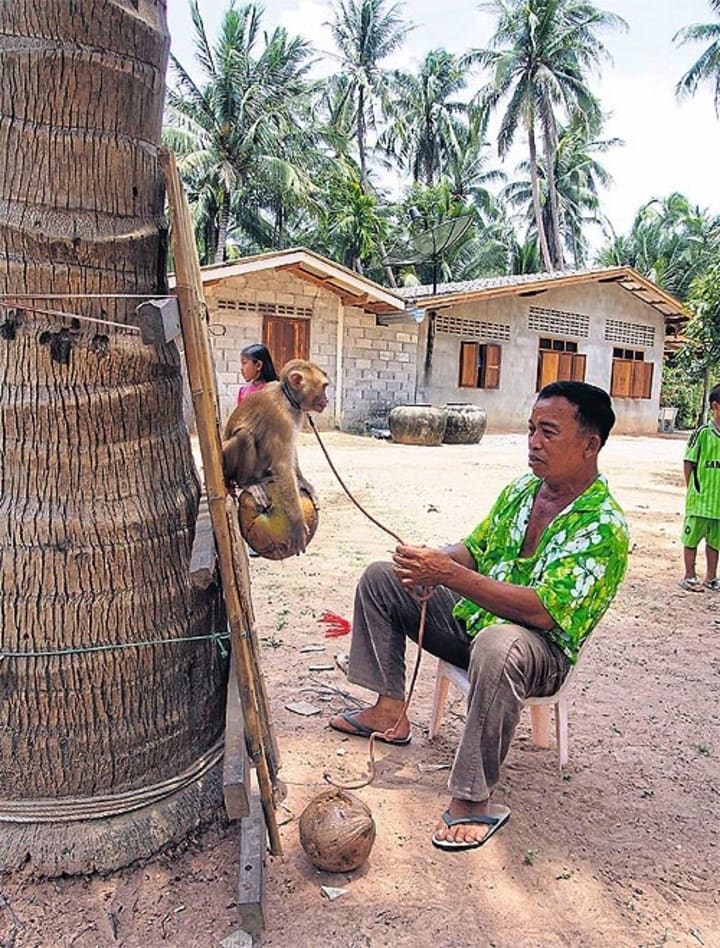
However, PETA claims that Aroy-D and Suree, two of HelloFresh's coconut milk suppliers, have confirmed to investigators that they use monkey labor.
According to the organization, exploited monkeys are generally abducted from their families as infants before being sold to monkey training schools where they are violently trained to pick coconuts.
PETA reports that a Suree employee stated that the monkeys are used for more than a decade before being retired and chained for the remainder of their lives.
Tracy Reiman, executive vice president of PETA, stated in a press release, "Monkeys are chained around the neck and made to work day in and day out for HelloFresh and other firms with no morals." Everyone, including HelloFresh, is urged by PETA to cease purchasing canned coconut milk from Thailand until monkeys are no longer exploited for profit.
PETA asked consumers to study the labels on coconut milk products and to only purchase brands whose ingredients are not sourced from Thailand.
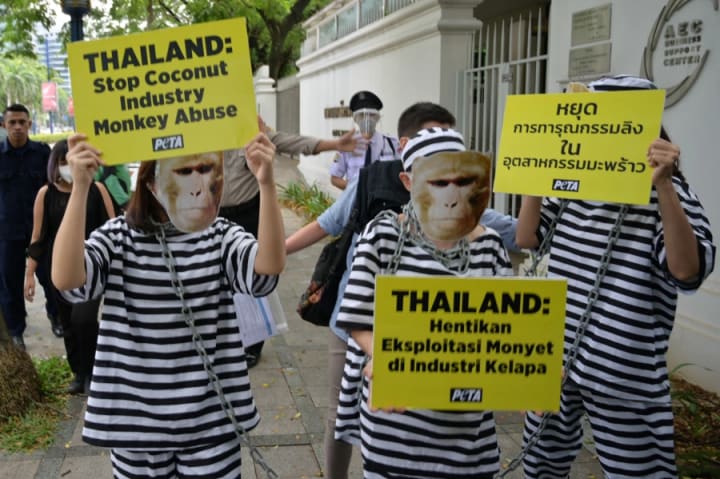
Other coconut-growing countries, such as Brazil, Colombia, and Hawaii, gather coconuts using humane techniques, such as tractor-mounted hydraulic elevators, willing human tree-climbers, rope or platform systems, or ladders, or they plant dwarf coconut trees.
Studies have shown that these approaches are superior to utilizing monkeys, who cannot differentiate between ripe and unripe fruit, and whose dropping of ripe coconuts causes them to get damaged.
About the Creator
Rare Stories
Our goal is to give you stories that will have you hooked.
This is an extension of the Quora space: Rare Stories
X(formerly Twitter): Scarce Stories
Official Bookstore: davidkellertruecrime
Writers:
....xoxo
Reader insights
Outstanding
Excellent work. Looking forward to reading more!
Top insights
Easy to read and follow
Well-structured & engaging content
Expert insights and opinions
Arguments were carefully researched and presented
Eye opening
Niche topic & fresh perspectives
Heartfelt and relatable
The story invoked strong personal emotions
On-point and relevant
Writing reflected the title & theme






Comments
There are no comments for this story
Be the first to respond and start the conversation.